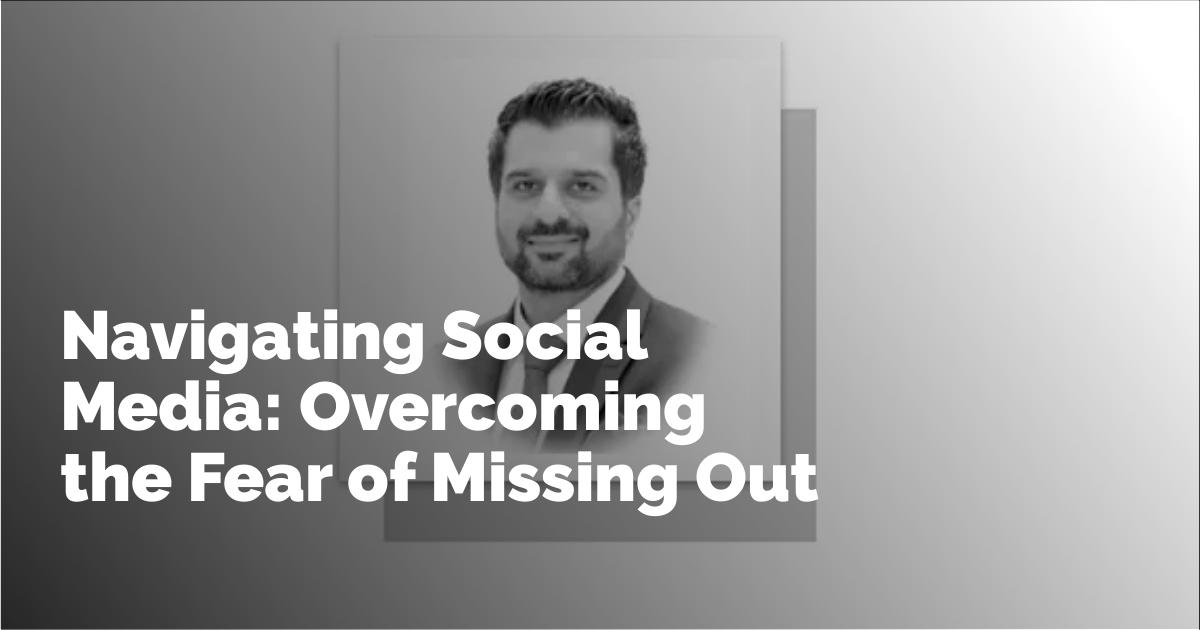Social Media and the Impact of FOMO on Today's Youth
The Idealized World of Social Media
In today's digital age, social media platforms have become ubiquitous, significantly shaping communication and connectivity. While these platforms offer instant access to information and foster global communication, they also present some profoundly challenging impacts, particularly on young people. Consider the story of a young man whose ambition for success and status is catalyzed by seeing a peer's post showcasing an enviable lifestyle. This perceived threat to his dreams leaves him isolated, anxious, and grappling with depression. This narrative underlines the pervasive effects that social media can have on youth, exacerbating feelings of inadequacy and depriving them of life's genuine joys.
The Rise of FOMO in the Digital Era
A significant driver of these negative emotions in young people is the fear of missing out, commonly known as FOMO. Social media is teeming with curated content—posts and images that highlight flawless moments of achievements, travels, relationships, and social gatherings. This stream of idealized content often makes it challenging for young individuals to reconcile their own lives with the seemingly perfect ones they observe online. Consequently, they experience a pervasive fear of missing out, driven by a constant urge to stay connected and updated on peers' activities and experiences.
The Psychological Toll of Online Comparisons
Young people are particularly vulnerable to the psychological strain of social media because of an inherent tendency to compare themselves with others. The pressure of conceiving a faultless online persona only amplifies this strain. Social approval, gauged by likes, comments, and shares, becomes an obsession, as young individuals labour incessantly to contrive a favourable digital image. The constant need for validation fosters materialism and underpins the societal notion that wealth equates to happiness, ultimately cultivating a sense of inferiority.
Mental Health Consequences of Excessive Engagement
The persistent drive to maintain an active online presence exacts a toll on mental health, leading to feelings of stress, fatigue, and burnout. The anxiety stemming from the fear of irrelevance if online presence is neglected only adds to this pressure, leaving individuals overwhelmed and disconnected from real-life interactions. Studies corroborate that excessive social media use correlates with increased levels of depression, anxiety, and loneliness, as users prioritize digital engagement over meaningful personal connections.
Navigating the Social Media Landscape
Understanding social media literacy holds crucial importance in mitigating these adverse effects. Education from schools, parents, and mental health professionals can enlighten young people about the disparity between virtual portrayals and real life. By learning to distinguish the polished images online from genuine experiences, individuals can reduce the emotional harm caused by unrealistic comparisons and achieve a healthier social media experience.
Striking Balance and Building Resilience
Reducing social media consumption is a pragmatic strategy to combat FOMO. Establishing boundaries through allotted tech-free times, limiting social media use, and engaging in offline hobbies are effective methods to rediscover fulfillment away from screens. Encouraging a growth mindset can help individuals focus on personal development rather than perfection, fostering self-acceptance and emotional resilience. Mindfulness practices like meditation and journaling can provide emotional balance and enhance self-awareness, promoting overall mental well-being.
A Call for Mindful Social Media Use
The profound transformation social media has brought to personal connections and worldviews is undeniable. However, the pressure it imposes on young individuals to constantly outperform and seek online validation carries detrimental psychological effects. To mitigate FOMO and its repercussions, young people must practice mindful social media usage, set clear boundaries, and invest in nurturing real-world interactions. By achieving a harmonious balance between online interaction and real-life satisfaction, they can foster a healthy and fulfilling life in this digital era, ultimately helping them reach their full potential.
In coordinating efforts to navigate the digital landscape mindfully, there is hope to overcome the fear of missing out, safeguarding youth from isolation and depression and enabling them to thrive both online and offline.
출처 : Original Source

